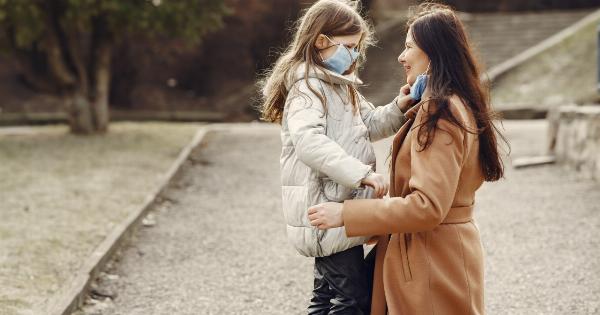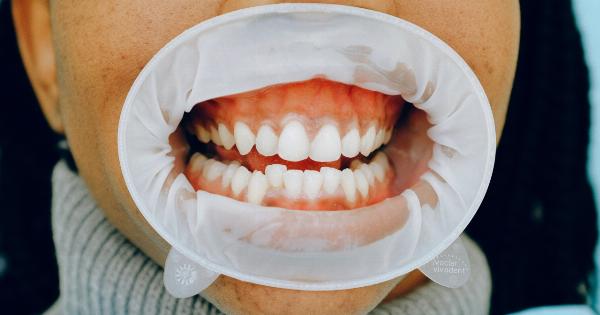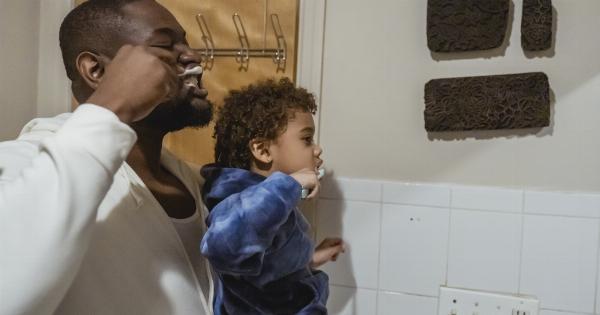Many parents rely on pacifiers to soothe and calm their babies. Pacifiers can provide comfort and help reduce fussiness, making them a popular choice for parents.
However, there has been some debate about the safety of using pacifiers for extended periods of time. In this article, we will explore the potential risks and benefits associated with prolonged pacifier use, as well as offer some tips for responsible pacifier usage.
The benefits of pacifiers
Pacifiers can offer several benefits for babies and parents alike. Here are some of the potential advantages:.
1. Soothing and calming
Pacifiers can provide babies with comfort and help to soothe them. The sucking motion can release endorphins and create a calming effect, making pacifiers an effective tool for settling a fussy baby.
2. Satisfying the suck reflex
Babies have a natural instinct to suck, and pacifiers can help satisfy this reflex. Some babies may have a strong need to suck even when they are not hungry, and pacifiers can provide them with the opportunity to do so without overfeeding.
3. Reducing the risk of Sudden Infant Death Syndrome (SIDS)
Studies suggest that the use of pacifiers during sleep may reduce the risk of SIDS.
The exact reasons why pacifiers have this effect are not fully understood, but it is believed that the sucking action keeps the baby in a lighter state of sleep and may prevent them from falling into deep sleep, which is associated with an increased risk of SIDS.
Risks associated with extended pacifier use
While pacifiers can offer benefits, there are also some potential risks to consider, especially when pacifiers are used for extended periods of time:.
1. Dental issues
Prolonged pacifier use can lead to dental problems such as misalignment of teeth and bite issues.
The use of pacifiers beyond the recommended age can affect the natural development of teeth and jaw, potentially requiring orthodontic intervention later on.
2. Speech and language development
Excessive reliance on pacifiers can interfere with a baby’s speech and language development. The constant presence of a pacifier in the mouth may discourage the baby from making sounds and attempting to communicate.
3. Ear infections
Studies have shown a possible link between prolonged pacifier use and an increased risk of ear infections.
The reason behind this link is not entirely clear, but it is believed that pacifiers may contribute to the accumulation of fluid in the middle ear, creating a breeding ground for bacteria.
Establishing healthy pacifier habits
While the potential risks associated with prolonged pacifier use should be considered, it is also important to remember that responsible pacifier use can minimize these risks. Here are some tips for establishing healthy pacifier habits:.
1. Limit pacifier use to sleep times
Using pacifiers only during sleep times can help reduce the dependency on them throughout the day. This can minimize the potential negative impact on dental, speech, and language development.
2. Introduce alternative soothing methods
Instead of relying solely on pacifiers to soothe their babies, parents can explore other ways to provide comfort. Gentle rocking, swaddling, or offering a clean finger for babies to suck on can be alternatives to pacifiers.
3. Gradually wean off pacifier
If parents decide to discontinue pacifier use, it is recommended to do so gradually. Abruptly taking away the pacifier can be distressing for the baby and make the transition more challenging.
Gradually reducing the dependency on pacifiers over time can help make the weaning process smoother for both the baby and the parents.
The bottom line
Using pacifiers for extended periods of time can have potential risks, particularly in terms of dental issues, speech and language development, and the risk of ear infections.
However, when used responsibly and within the recommended guidelines, pacifiers can offer comfort and may even reduce the risk of SIDS.
Ultimately, the decision to use pacifiers and for how long should be based on the individual needs and circumstances of the baby and the family. Consultation with pediatricians can provide valuable guidance regarding pacifier use.



























